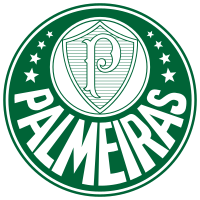Article body analysed
One of the most recognisable names in South American football, Palmeiras weren’t always called that, and the story of how they ended up there is quite remarkable. The Brazilian side will be one of the biggest contenders from outside Europe at the Club World Cup, having won two Copa Libertadores in recent years under manager Abel Ferreira. Scouts and gaming fans will also have their eyes all over the club that produced Real Madrid’s Endrick, Chelsea’s Willian Estevao and Manchester City’s Vitor Reis. But perhaps most interesting of all is the P on their badge, a letter they had to fight for during the second world war. The Sao Paulo side was founded at the start of the First World War in 1914, an idea cooked up by the local Italian immigrant community - but that nationality later became a problem. Making the idea of an Italian team mainstream, state newspaper Fanfulla wrote: “In Sao Paulo we have the football club of the Germans, of the English, of the Portuguese, of the Catholics and Protestants. “But no club composed exclusively of Italian sportsmen, and our colony is the largest in the state, yet still nothing has been tried! ” After several meetings Palmeiras were formed as Palestra Italia for Brazilian-Italians, and as it turned out, the World Cup’s two most winningest nations were quite good at football. Their first of 26 state titles came in 1920, and they couldn’t stop themselves until a problem arose in 1939. The war had started and Brazil had sided with the allies which came along with the banning of any support for the Axis powers of Germany, Italy and Japan. That was an issue for Palestra Italia, who were told to change their name, and went for Palestra Sao Paulo. Brazil president Getulio Vargas didn’t accept the name, though, thinking it was still too Italian even though the club argued it was a Greek word. Then came the threats that he would revoke their licence and the club would lose its right to exist, something that was increasingly popular among the public given the atrocities that Italy and their allies were committing across the globe. Palestra had to make a decision while top of the league and about to win their ninth state title in 1942 and they went for Palmeiras - which is Portuguese for palm trees, a very local sight that also maintained the ‘P’ of their logo. They’d already had to remodel said logo, removing the tricolore red white and green of Italy, but were told the original ‘P’ had to be forgotten for the potential season finale. That should settle that then? Well no, not quite. During a speech at a football stadium, Vargas said he would be ‘Relentless in the fight against the invaders and their infiltrated agents, ’ and would ‘rigorously use the laws of war’ to fight against those in Brazil. In the public’s eyes, the newly-called Palmeiras were enemy No. 1, and the club were expecting plenty of abuse next time out away at Sao Paulo FC where a win would’ve clinched the title. How they tackled it will forever go down in South American folklore, and remains a key part of Palmeiras’ storied history to this day. The team sprinted out onto the pitch led by their vice president Adalberto Mendes - who was a captain in the Brazilian army - and he was holding a Brazilian flag. The gesture was largely applauded by the crowd, relieving tension that could have quite easily boiled over - achieving one of the goals Palmeiras had set out for. However, their main goal was the title, and by half-time they were 2-1 up, but there was more drama to come. At the start of the second a penalty was awarded to make it 3-1 and Sao Paulo walked off into the changing rooms, with the game abandoned 30 minutes later when it was made clear they would not return. The title was Palmeiras’ and the club’s unofficial mantra was born - ‘Palestra died as leaders, Palmeiras was born as champions’. Historians differ on whether the flag gesture was a solidarity with the Brazilian nation, or protest in the form of submission, but either way a legend was born as it became known as the ‘Arrancada Heroica’ or ‘historic sprint’. Palmeiras wore a tribute to the moment in 2017 with their previous ‘P’ logo and gold detailing, showing that however history viewed the moment, it was theirs. Now South America’s greatest Club World Cup hope with arguably the best manager outside of Europe in Ferreira, Palmeiras will be the flag bearers for Brazil in the US, an astonishing turnaround from their first waving of the green, blue and yellow. Watch all of the FIFA Club World Cup free on DAZN. Sign up now so you don't miss any of the action. © 2025 talk SPORT Limited
Registered in England No. 2806093. Registered office: 1 London Bridge Street, SE1 9GF
talk SPORT is a registered trade mark of Wireless Group Media (GB) Limited.
This service is provided on talk SPORT Limited's Terms of Use in accordance with our Privacy & Cookie Policy.
